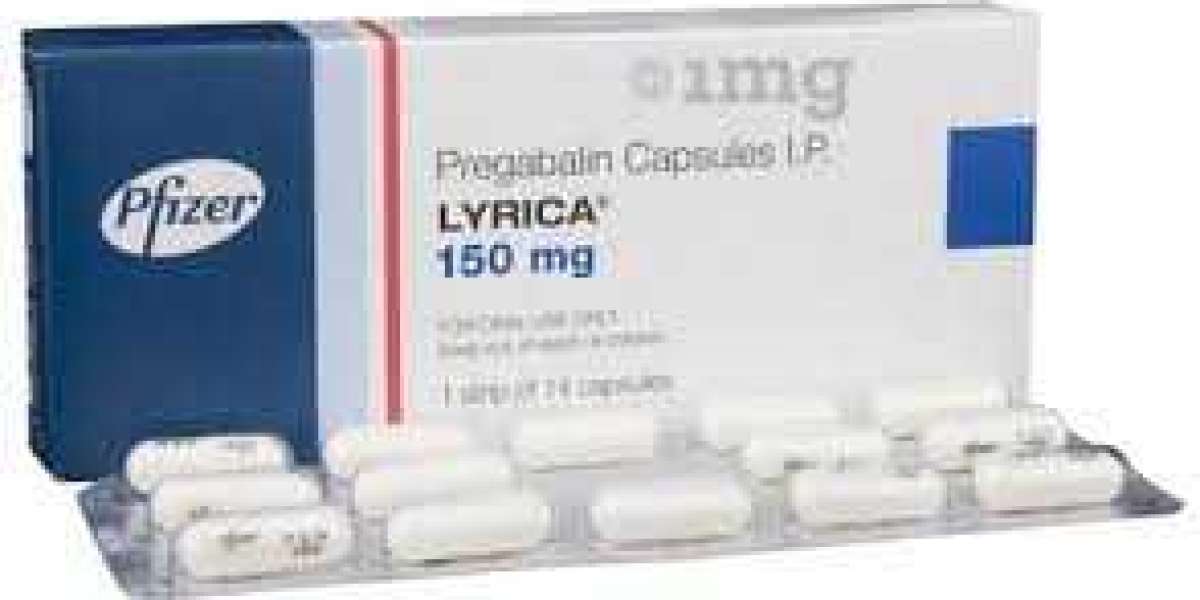Introduction
Lyrica (pregabalin) is a medication that has gained significant attention for its effectiveness in treating pain caused by nerve injury, also known as neuropathic pain. Pregabalin is a structural analogue of gamma-aminobutyric acid (GABA), but its mechanism of action differs from that of GABA. This paper will delve into the use of Lyrica 150 mg for relieving neuropathic pain, exploring its pharmacological properties, clinical efficacy, patient experiences, and guidelines for its use.
Understanding Neuropathic Pain
Pathophysiology
Neuropathic pain is a complex, chronic pain state that usually occurs due to nerve injury or dysfunction. Unlike nociceptive pain, which results from actual tissue damage or inflammation, neuropathic pain arises from damage to the nervous system itself. This type of pain can be caused by various conditions, including:
- Diabetes (Diabetic Neuropathy)
- Herpes Zoster (Postherpetic Neuralgia)
- Spinal Cord Injuries
- Multiple Sclerosis
- Chemotherapy-induced Neuropathy
- Trigeminal Neuralgia
Symptoms of neuropathic pain include shooting or burning pain, tingling, numbness, and hypersensitivity to touch or temperature changes.
Lyrica (Pregabalin) Overview
Mechanism of Action
Pregabalin binds to the alpha-2-delta subunit of voltage-gated calcium channels in the central nervous system. This binding reduces the release of excitatory neurotransmitters like glutamate, norepinephrine, and substance P, which are involved in pain transmission. By modulating the release of these neurotransmitters, pregabalin helps to reduce the intensity of neuropathic pain.
Indications
Lyrica is approved for the treatment of several conditions, including:
- Neuropathic pain associated with diabetic peripheral neuropathy
- Postherpetic neuralgia
- Fibromyalgia
- Neuropathic pain associated with spinal cord injury
- As an adjunctive therapy for partial-onset seizures in adults
Efficacy of Lyrica 150 mg in Neuropathic Pain
Clinical Studies and Trials
Numerous clinical trials have investigated the efficacy of pregabalin in treating neuropathic pain. Here are some key findings:
- Diabetic Peripheral Neuropathy: Studies have shown that Lyrica significantly reduces pain in patients with diabetic neuropathy. In one study, patients taking 150 mg twice daily reported a notable reduction in pain scores compared to those taking a placebo.
- Postherpetic Neuralgia: Lyrica has been demonstrated to be effective in reducing pain and improving sleep and overall quality of life in patients with postherpetic neuralgia. Patients on 150 mg twice daily experienced significant relief from chronic pain.
- Spinal Cord Injury Pain: Clinical trials have shown that pregabalin reduces pain in patients with spinal cord injuries. In these studies, doses of 150 mg twice daily were effective in alleviating neuropathic pain and improving functional outcomes.
Dose-Response Relationship
The effectiveness of Lyrica is dose-dependent. Higher doses generally result in greater pain relief, but also come with an increased risk of side effects. The typical dosing regimen begins at 75 mg twice daily and can be increased to 150 mg twice daily based on the patient's response and tolerability. For some patients, doses up to 300 mg twice daily may be considered.
Patient Experiences with Lyrica
Positive Experiences
Many patients report significant improvements in their pain levels and overall quality of life while taking Lyrica 150 mg. Common positive experiences include:
- Substantial Pain Relief: Patients often report a significant reduction in neuropathic pain, which allows them to engage more fully in daily activities.
- Improved Sleep: Many patients experience better sleep quality due to reduced pain.
- Enhanced Quality of Life: Relief from chronic pain often leads to improvements in mood and overall well-being.
Side Effects and Management
While Lyrica is effective for many patients, it is not without side effects. Common side effects include:
- Dizziness and Drowsiness: These are the most frequently reported side effects and can be managed by adjusting the dose.
- Weight Gain: Some patients experience weight gain, which may require dietary adjustments and regular exercise.
- Peripheral Edema: Swelling of the extremities is another side effect that can occur, particularly at higher doses.
Managing these side effects often involves starting at a lower dose and gradually increasing to 150 mg, monitoring the patient closely, and making adjustments as needed.
Mixed and Negative Experiences
Not all patients respond positively to Lyrica. Some negative experiences include:
- Limited Pain Relief: A subset of patients may not experience significant pain relief even at higher doses.
- Severe Side Effects: Some patients may experience severe side effects such as significant dizziness, cognitive impairment, or excessive drowsiness, leading to discontinuation of the medication.
Clinical Guidelines and Recommendations
Initiation and Titration
For managing neuropathic pain with Lyrica, the following guidelines are recommended:
- Starting Dose: Initiate treatment at 75 mg twice daily.
- Titration: Increase the dose to 150 mg twice daily based on patient response and tolerability. If necessary, the dose can be further increased to a maximum of 300 mg twice daily.
Long-term Management
- Continuous Assessment: Regularly assess pain levels, functional status, and side effects. Adjust the dose as needed to balance efficacy and tolerability.
- Patient Education: Educate patients about potential side effects and the importance of adhering to the prescribed dosing regimen.
- Combination Therapy: Consider using Lyrica in combination with other treatments such as physical therapy, cognitive-behavioral therapy, and lifestyle modifications for a holistic approach to pain management.
Real-World Patient Testimonials
Real-world patient testimonials provide valuable insights into the practical use of Lyrica:
- Case 1: A 55-year-old woman with diabetic neuropathy reported significant pain reduction and improved sleep quality with Lyrica 150 mg twice daily. She experienced mild dizziness initially, which resolved over time.
- Case 2: A 60-year-old man with postherpetic neuralgia found that Lyrica 150 mg twice daily reduced his pain to a manageable level, allowing him to participate in daily activities without severe discomfort. However, he noted some weight gain.
- Case 3: A 45-year-old woman with spinal cord injury pain experienced partial pain relief with Lyrica 150 mg twice daily but had to discontinue the medication due to persistent dizziness and drowsiness.
Comparative Studies
Comparative studies have evaluated the efficacy of Lyrica against other treatments for neuropathic pain, such as gabapentin, duloxetine, and amitriptyline. These studies generally suggest that while all these medications can be effective, individual patient response varies. Lyrica may offer faster onset of action and greater efficacy in some patients, but it also comes with a distinct side effect profile.
Conclusion
Lyrica 150 mg (pregabalin) is an effective treatment for neuropathic pain caused by conditions such as diabetic peripheral neuropathy, postherpetic neuralgia, and spinal cord injuries. Clinical studies and real-world patient experiences support its efficacy in reducing pain, improving sleep, and enhancing quality of life. However, the potential for side effects and individual variability in response necessitates careful management and regular monitoring. By adhering to clinical guidelines and considering patient-specific factors, healthcare providers can optimize the use of Lyrica in managing neuropathic pain. The decision to use Lyrica should be made collaboratively between patients and their healthcare providers, with a focus on balancing pain relief and quality of life.








